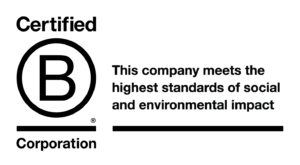With half of the nuclear industry’s workforce eligible to retire within the next ten years, the field will become even more of a job-seeker’s market in the decade ahead. Canadian energy stakeholders are offering a growing collection of creative initiatives to inspire more people to consider a career the field. Here are four cool ways to dip a toe into the water to see if this powerhouse of a sector could be right for you.
Visit the world’s largest nuclear facility
Bruce Power is the world’s largest operating nuclear facility, providing 30% of Ontario’s electricity. At the Bruce Power Visitors’ Centre visitors can take a simulated tour inside a reactor or try their skills as a nuclear fuel operator on replica control room panels. Another exhibit in the Visitor Centre lets guests take control of a console to select different generation sources – wind, solar, biomass, coal, natural gas, and nuclear – to power an imaginary city. The Bruce Power Visitors’ Centre is open to the public Monday to Friday, 9 a.m. to 4 p.m. year-round as well as Saturdays and Sundays, 9 a.m. to 4 p.m., in July and August. If you like what you see, let the staff know and they’ll be happy to provide you with career information.
Spend the summer with a medium flux nuclear reactor
McMaster University’s nuclear reactor was the first university-based research reactor in the British Commonwealth. Today, the medium flux reactor is still by far Canada’s most powerful research reactor at a university and it conducts hundreds of thousands of neutron irradiations each year. McMaster is the only university in Canada where undergraduate students get the opportunity to gain hands-on experience with a medium flux nuclear reactor as a part of their educational experience. Each summer, the McMaster Nuclear Operations and Facilities group hires undergraduate students to work as research assistants at various campus nuclear research facilities.
Chalk up some experience at Chalk River
Canadian Nuclear Laboratories is Canada’s premier nuclear science and technology organization. There’s an exciting $1.2 billion, 10-year transformation endeavour currently underway at its Chalk River Laboratories. Summer job positions and four-, eight-, twelve and sixteen-month co-op opportunities are available for college and university students.
Upgrade your engineering skills with a part-time nuclear engineering education
Recognizing that engineers who have already graduated may want to acquire nuclear sector knowledge, the University Network of Excellence in Nuclear Engineering offers a graduate-level diploma and Masters in Nuclear Engineering that can both be pursued on weekends. The courses are offered by McMaster, Waterloo, Western, Queen’s and UOIT. The UNENE M.Eng. consists of 10 courses, or 8 courses plus a project, and must be completed within 5 years. The UNENE Diploma consists of 4 courses and must be completed within 3 years.
Raise works with nuclear suppliers across North America and has been placing candidates in the industry for over 50 years. In that last two decades alone, we’ve coordinated over 7,000 job placements in the nuclear industry. If you’d like to browse our current opportunities in the power and nuclear sector, click here.
To read more similar blogs, click here







